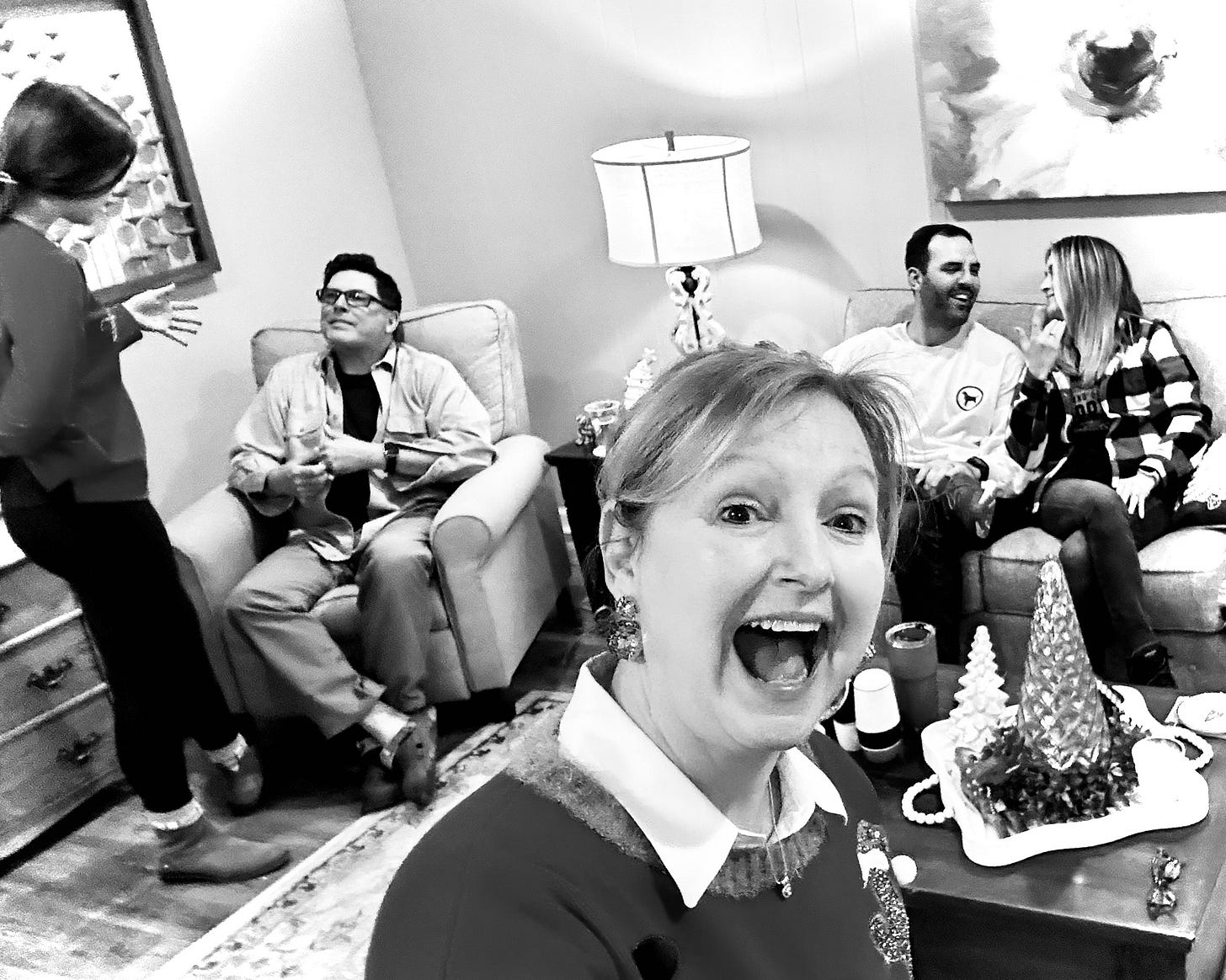Know Your Norms to Know How to Grow
Issue #0093
Friends, we’d love to pour more deeply into your marriage. Jo & I will be leading two Great Marriage Retreats in February. Join us at either or schedule us for your own event. Message us for details.
February 7-8: Nashville Methodist Church, Nashville, GA
Feb 21-22: Pooler Bible Church, Pooler, GA
Know Your Norms…
Your marriage is a complex combination of unique experiences, stories, personalities, strengths, weaknesses, preferences, tendencies, and blind spots. You were each immeasurably shaped by your childhood homes where you learned what you considered normal behavior patterns. You were incredibly adaptive as a child, so whatever was consistently happening in your childhood home, whether you now deem it positive or negative became your normal, meaning you grew fluent in how to anticipate and navigate your consistent circumstances, even if what was most consistent was inconsistency itself.
While we may be determined to have a completely different home, each of us carry significant traits of that fluency into our adult lives and relationships. When the Bible speaks of generational sin or “the sins of your fathers,” it is referring to how impressionable children are and how influential, for better or worse, parents are. What was consistent became known. What was known became normal. What was normal became comfortable. We likely brought a significant portion of what we find comfortable into adulthood whether we realized it or not.
Then we married someone with a different set of normal expectations, behaviors, and reactions; and we may each find ourselves pushed outside of our comfort zones by our spouse’s norms.
If our childhood home was rife with chaos, dysfunctional relationships, inconsistent behaviors, addictions, mental illness, broken trust, and/or unpleasant surprises, we tend to become adults with a high tolerance, or perhaps even preference, for risks, disruptions, the unknown, and an overall lack of structure. Lots of successful entrepreneurs and organizational founders come out of these kinds of homes. Why? Their risk tolerances tend to be high, they don’t tend to crave structure, and they don’t tend to be as rattled by the potential of what others might deem failure.
If our childhood home is remembered primarily as a place of consistent comfort, security, love, and encouragement, we tend to be more attracted to what we perceive as stable, secure, predictable, and structured. We’ll often gravitate toward well established, secure industries and established or successful employers within those industries.
The irony of marriage is that couples who find themselves wholly similar in their formative experiences are most likely to have unidentified shared blind-spots and may thus have underlying or long-term vulnerabilities. Couples who widely differ in their formative experiences may have early struggles, though it’s their learning to understand and leverage their differences that gives them a wider perspective and great chance to develop a Great Marriage.
When we find ourselves outside of our comfort zones, we will either fight to reestablish them, unintentionally move away from our pain point to what we find familiar, or we will realize an opportunity to grow and push through our discomfort. It’s important to realize that these first two options – fighting to reestablish our comfort zones or moving away from our discomfort toward the familiar - are most often subconscious tendencies. The third option - seeking to grow and pushing through our discomfort – is always an intentional conscious effort.
So, when someone from a secure, stable childhood finds themselves facing what they deem as unnecessary or unwanted risks, disrupted plans, or stepping into unknown territory, they will often elevate their feelings from discomfort to fear and respond with attempts to control. If married to someone with a more chaotic background, their feelings of being placed in unnecessary risk or danger will often sabotage their own wellness and relationships by trying to control what is clearly outside of their control. The risk is that others will miss their very real fear and simply view them as controlling or demanding.
When someone from a chaotic background finds themselves in a structured or predictable setting, they may unintentionally self-sabotage by “adding some chaos to life.” They may make significant decisions too quickly, overextend themselves by taking on additional projects or responsibilities, or simply overrun the risk tolerances of their spouse. One of the most significant weaknesses of someone from a chaotic background is that since he/she is relatively numb to what others may consider significant risks or chaos, he/she may appear to minimize or dismiss the concerns of others because he/she does not view risk or chaos the same and may indeed think that others are exaggerating their concerns.
As far as these gaps can be, it’s just as challenging to marry someone from a similar childhood home. Two spouses from a safe, nurturing home are likely to miss significant opportunities due to a low shared risk tolerance, while two spouses from chaotic backgrounds may often put themselves in financial or relational distress, or be unable to settle anywhere long enough to establish long-term strengths and relationships.
Of course, these are common tendencies rather than hard and fast rules. The key to Great Marriage is less about your spouse’s background than it is linked to your abilities and willingness to understand your own norms and how your tendencies affect each other. Great Marriage is not dependent on becoming like or unlike your spouse, but on understanding each other while learning to appreciate your spouse’s perspectives and using your similarities and differences to become a wiser couple.
Discussion Questions:
Discuss your childhood homes.
Do you see the tendencies mentioned above in your own interactions?
Do you see the tendencies mentioned above in your spouse’s interactions?
How might understanding each other’s norms better shape your interactions?
How might your spouse help you when you’re outside your comfort zone?



